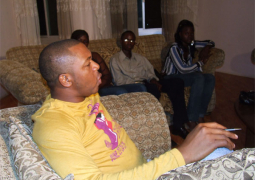The Gambia Workers Confederation (GWC) has urged the Government of the Gambia to halt its plans to change the official government working hours and days, effective 1st February 2013 in order not to kill The Gambia’s standard social service hours and days of work.
In a statement issued by the GWC and signed by its Executive Secretary General, Pa Modou Faal, the GWC said as an organized labour representative, they are obliged to request for the halting of the Executive Orders scheduled to commence on 1st February 2013 by the Gambia Government.
“It is our belief that it is an impromptu executive order which needs a sober reflection and time for a change of this nature,” the GWC said.
According to the GWC, the present five or six working days per week of eight hours a day based on International Standards has been agreed, accepted and adopted by the world of work.
It cited the International Labour Organization ILO which is the most specialised agency of the United Nations, and of which The Gambia is a member state, and also the fact that this country has ratified Convention No 87 and 98 (relating to the Right to Organise and to join Trade Unions of their choice and to Bargain Collectively, etc.)
“We therefore call for decent work country programme and request the Government to dialogue with its social partners on the above subject,” it added.
The Office of the President last week announced changes to the official government working hours and days, effective 1st February 2013.
A press release from the presidency said President Yahya Jammeh in consultation with Cabinet and giving due consideration to public demands has issued the executive decision to make the changes.
According to the release, the new working days and times will be Mondays to Thursdays from 8am to 6pm.
The release also announced that Fridays will henceforth become rest and prayer days alongside Saturdays and Sundays.
Schools, banks and all affected institutions, the release stated, are free to work on Saturdays to compensate for the Fridays.
“This new arrangement will allow Gambians to devote more time to prayers, social activities and agriculture - going back to the land and grow what we eat and eat what we grow for a healthy and wealthy nation,” the release added.
Read Other Articles In Article (Archive)

Islam the Misunderstood Religion Islam and the Concept of Punishment
Jan 24, 2014, 10:02 AM

British philanthropist promises full support for Raptim Academy
Nov 29, 2011, 12:59 PM



